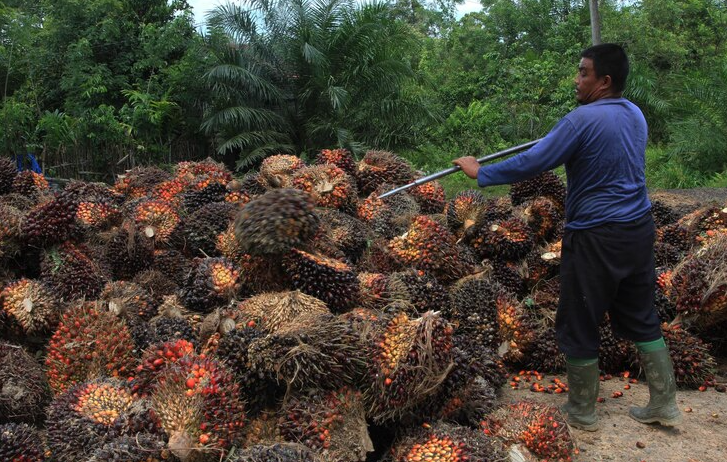In a transformative move for Nigeria’s mining and industrial sectors, the Federal Government has endorsed a groundbreaking $400 million investment in a rare earth and critical minerals processing facility in Nasarawa State. The project, spearheaded by Hasetins Commodities Ltd, is set to become Africa’s largest rare earth processing plant, positioning Nigeria at the forefront of the global clean energy and high-tech materials value chain.
With an expected capacity to generate over 10,000 jobs, this initiative marks a pivotal step in diversifying Nigeria’s economy away from crude oil dependence while tapping into the booming global demand for rare earth elements (REEs) used in electronics, electric vehicles, renewable energy technologies, and defense systems.
Why Rare Earth Elements Matter
Rare earth elements are a group of 17 metals crucial for modern technologies. From smartphones, wind turbines, and electric vehicles to military-grade navigation systems, these minerals are foundational to global supply chains and future-proof industries. However, global production has long been dominated by a handful of countries, notably China, which currently accounts for over 60% of rare earth processing worldwide.
Nigeria’s entry into this strategic sector, through the Nasarawa project, holds enormous geopolitical and economic significance. As global powers seek to diversify sources of rare earths amid supply chain tensions, Nigeria’s abundant untapped mineral reserves offer a compelling alternative.
Strategic Location and National Benefits
Nasarawa State, often referred to as the “Home of Solid Minerals,” is rich in rare earths, lithium, niobium, and other critical minerals. The decision to site the processing facility in this region taps directly into these resources, reducing transportation costs and accelerating production timelines.
The facility is expected to:
-
Create over 10,000 direct and indirect jobs, stimulating economic activity in surrounding communities.
-
Enhance local value addition, with minerals processed domestically rather than exported raw—a key focus of Nigeria’s mining reform strategy.
-
Generate foreign exchange through exports of processed minerals, reducing pressure on the Naira.
-
Attract further investment into associated sectors like logistics, engineering, and infrastructure development.
According to Nigeria’s Ministry of Solid Minerals Development, the project aligns with the National Integrated Minerals Development Strategy (NIMDS), which seeks to turn the mining sector into a primary source of national income by 2030.
Industrialization Through Resource Value Chains
Historically, Africa’s mineral wealth has been exported in raw form, with limited benefits accruing to local communities and national economies. The Nasarawa rare earth project breaks that cycle by prioritizing in-country beneficiation and industrial processing. This shift ensures that value is retained within Nigeria, feeding into industrial parks, local manufacturers, and tech-driven export industries.
The facility is also expected to serve as a regional hub, attracting minerals from neighboring West African countries for processing. This would reinforce Nigeria’s ambition to become a central player in Africa’s green transition and energy storage markets.
Environmental and Social Considerations
Rare earth mining and processing can pose environmental risks if not properly managed. In light of this, Hasetins Commodities has committed to implementing global best practices in environmental sustainability, including waste management, water recycling, and community impact assessments.
Engagement with local stakeholders in Nasarawa is ongoing to ensure that host communities are not left behind. Training and capacity-building programs are also planned to enable local participation in the technical and managerial aspects of the project.
Nigeria’s Mining Future: A New Era
This $400 million facility represents a major shift in Nigeria’s mining narrative from underutilized potential to strategic execution. With this project, Nigeria joins a growing list of countries investing heavily in the critical minerals economy to support global clean tech industries.
The government’s active backing of the Nasarawa plant sends a strong signal to both domestic and international investors that Nigeria is open for mining business—reformed, regulated, and ready to lead in resource-based industrialization.
Conclusion: More Than a Mining Project
The rare earth and critical minerals facility in Nasarawa is more than an industrial site, it is a symbol of Nigeria’s economic evolution. By embracing cutting-edge industries and championing local beneficiation, Nigeria is laying the groundwork for job creation, technological advancement, and global relevance in the 21st-century minerals economy.
As construction begins and operations ramp up, all eyes will be on Nasarawa, where Nigeria’s bold vision for a mineral-powered future is beginning to take shape.
Published by Xamblog.com – Exploring breakthroughs that shape Africa’s industrial transformation.
Last Updated on June 23, 2025 by kingstar





